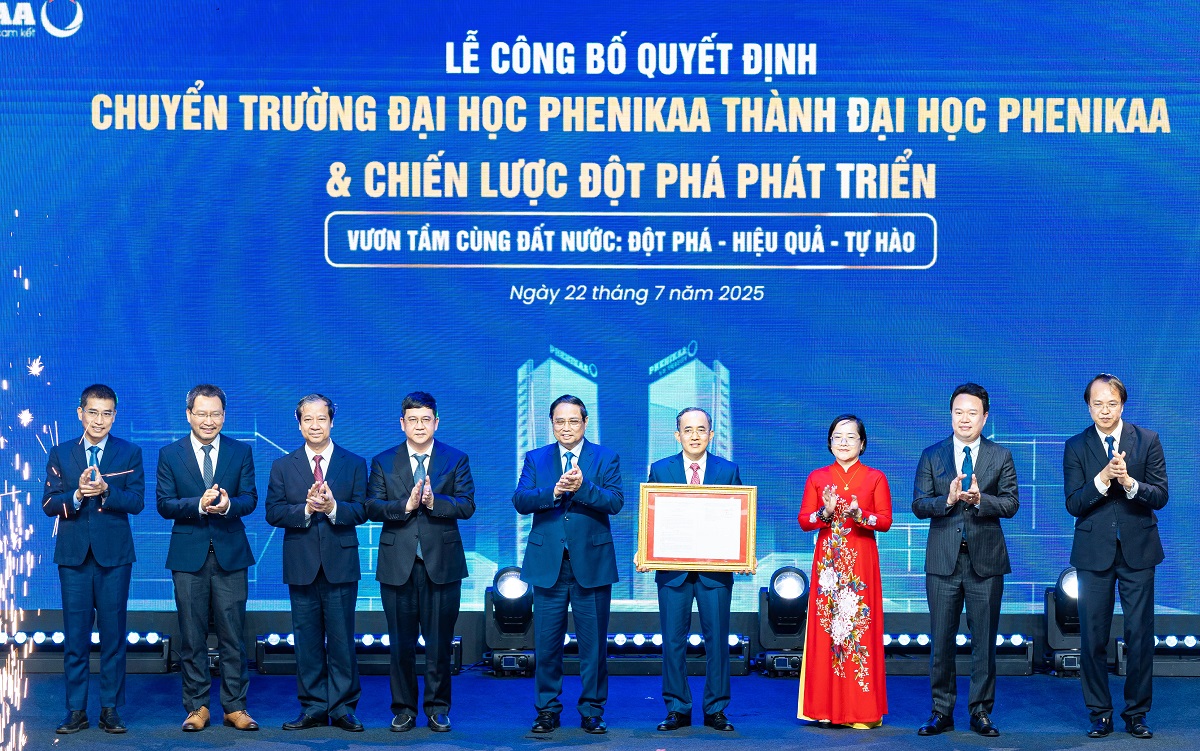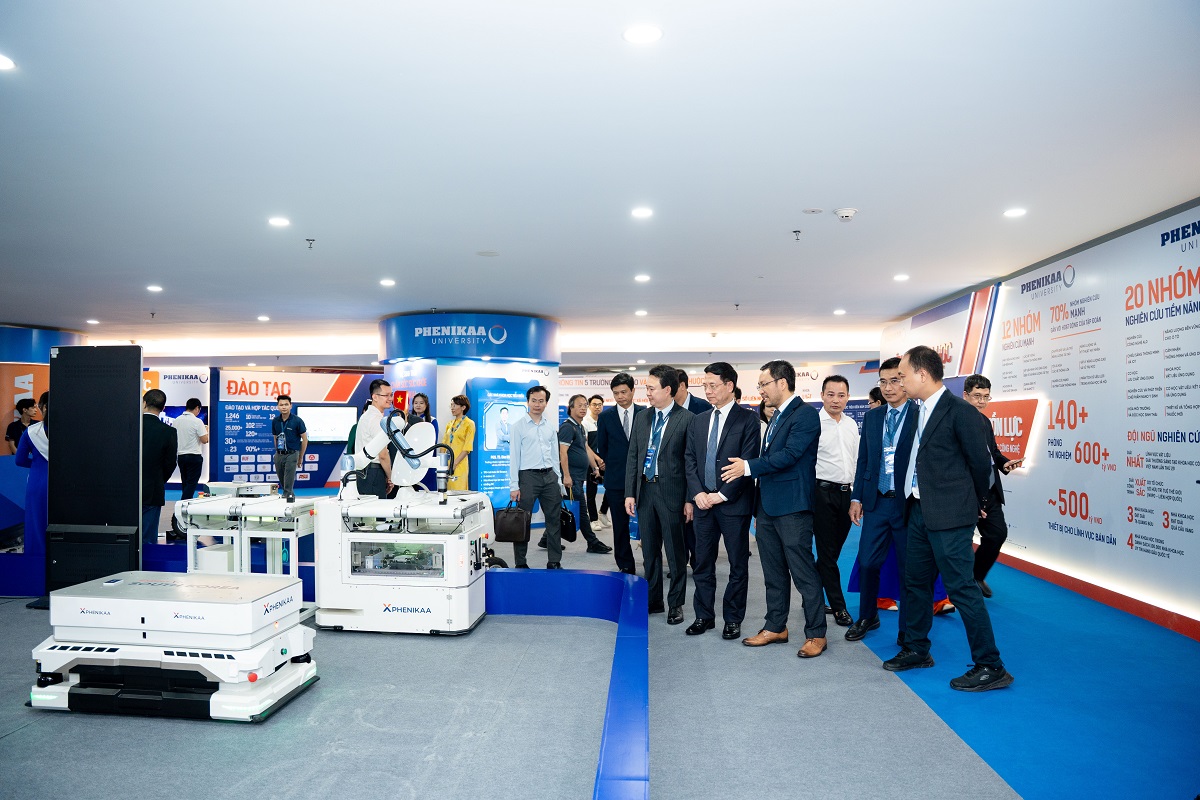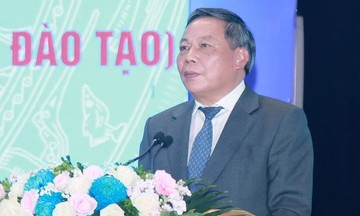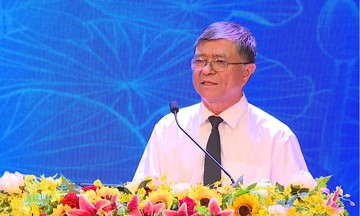Innovative universities are a vital trend in national economic development.
From the late 19th and early 20th centuries, major universities like MIT and Stanford began shifting from knowledge transmission to promoting research and innovation, connecting with businesses, and commercializing products. This led to the popularization of the concept of entrepreneurial and innovative universities, fostering a startup culture within these institutions. The 1980 Bayh-Dole Act in the US, which allowed universities to retain intellectual property rights, not only propelled American universities to become centers of innovation but also spread the model of university-business cooperation and research commercialization to other countries like Germany, the UK, and Japan.
In Vietnam, the State has issued numerous resolutions, laws, and policies to encourage this activity. However, most universities still focus on education, with research and innovation in their early stages. At the ceremony announcing the decision to transition Phenikaa University to University status on 22/7, the Prime Minister emphasized the role of knowledge and innovation: "Talented individuals are the lifeblood of the nation. Enlightenment through knowledge leads to national development. Innovation drives rapid and sustainable development. These are crucial elements for our country to enter an era of prosperity, strength, civilization, and affluence."
 |
Prime Minister Pham Minh Chinh presents the University Transition Decision to Phenikaa University's leadership on 22/7. *Photo: Phenikaa University* |
Phenikaa University is restructuring itself as a knowledge-based enterprise, integrating a university-business model where education, scientific research, and innovation play equal roles. Education provides high-quality human resources and innovative ideas. Scientific research generates new knowledge through international publications, patents, and practical solutions. Innovation transforms knowledge into commercial solutions and intellectual businesses.
A breakthrough strategy for scientific research and innovation
According to a Phenikaa University representative, innovation is key to sustainable growth. The integrated university-business model, with its breakthrough mechanisms, allows Phenikaa to build a comprehensive innovation environment, increasing the connection between research and education, and promoting technology transfer and commercialization. This is supported by a network of funds, innovation centers, and market research centers from Phenikaa Group, creating space for startups and innovation within the university.
Guided by the 11 strategic technology groups outlined in Decision No. 1131 issued by the Prime Minister, Phenikaa University focuses resources on researching and developing core technologies in emerging and national strategic technology sectors. It applies and transfers these technologies on an industrial scale through a product ordering and bidding mechanism between businesses and the university. The university prioritizes five areas:
Semiconductor technology: Phenikaa is building a chip design ecosystem, enabling synchronous chip design operations and self-sufficiency in at least five core technology areas. It consistently implements high-quality human resource training, research, design, semiconductor product testing, and commercialization.
Phenikaa University began recruiting students for semiconductor chip design and technology engineering in the 2024 academic year and established the Phenikaa Semiconductor Training Center (PSTC) for specialized training to meet societal needs. The Phenikaa semiconductor ecosystem also includes S-Phenikaa, a spin-off company of Phenikaa Group and Phenikaa University, linking education with practice and research to solve real-world problems, enabling synchronous chip design operations.
S-Phenikaa is developing and preparing for trial production of advanced AI-integrated chips and ADC chips for various devices. The company expects to launch its first chip product in early 2026.
Autonomous technology: Phenikaa's lecturers and scientists are researching, designing, and mastering a multi-purpose unmanned platform for self-driving taxis and buses, unmanned aerial vehicles, and delivery robots.
All core technology blocks are developed by the research team at Phenikaa University, resulting in six recognized patents related to modules such as high-resolution mapping equipment and algorithms, intelligent environment recognition, navigation and control, system integration, and internal traffic management technology. From these inventions, the spin-off company Phenikaa-X was established to commercialize robot technology, autonomous vehicles, and autonomous drones. Some products have been exported to international markets like South Korea and Luxembourg.
Energy storage technology: Phenikaa focuses on mastering the technology for manufacturing and applying solid-state electrolytes to produce solid-state lithium batteries. Phenikaa University currently holds three patents for the manufacturing process of solid-state electrolytes for solid-state lithium batteries, with seven other applications accepted. The university also manufactures pouch cells with good performance and higher capacity compared to commercial liquid electrolyte batteries. It is preparing a pilot production line to assemble solid-state battery samples for use in automobiles, aiming to master the core technology of solid-state lithium batteries.
 |
Leaders of ministries and sectors visit Phenikaa University's science and technology product exhibition at the ceremony announcing the Prime Minister's decision to transition Phenikaa University to University status. *Photo: Phenikaa University* |
Biomedical technology: Phenikaa University is leveraging the advantages of Phenikaa Group's ecosystem with comprehensive, synchronized infrastructure, and advanced technology in biomedicine. The university is gradually realizing a Vietnamese-owned precision and regenerative medicine ecosystem for the sustainable health of the Vietnamese community, prioritizing gene and genetic technology and cell technology.
Advanced materials technology: Phenikaa invests heavily in R&D. The university has achieved success in advanced materials research and industrial-scale transfer, such as the Phenikaa Chemical Plant with unsaturated polyester resin materials. This plant received the Award for Outstanding Achievement from the World Intellectual Property Organization (WIPO) and the first prize in the Vietnam Science and Technology Innovation Awards (VIFOTEC) 2023. Other achievements include the world's second-largest cristobalite plant and the world's first green Bio quartz material plant using advanced technology, as well as nano-technology and smart materials applied in drug and sensor production.
With these strategic breakthroughs and a comprehensive innovation orientation, Phenikaa University creates an environment for knowledge transmission and development, promoting practical scientific research and innovation. Simultaneously, the university pursues and realizes unique ideas, allowing talents to develop freely, applying science and technology to address real-world problems and contribute to solving national-level issues, creating groundbreaking new values for the sustainable development of society.
Thanh Thao












